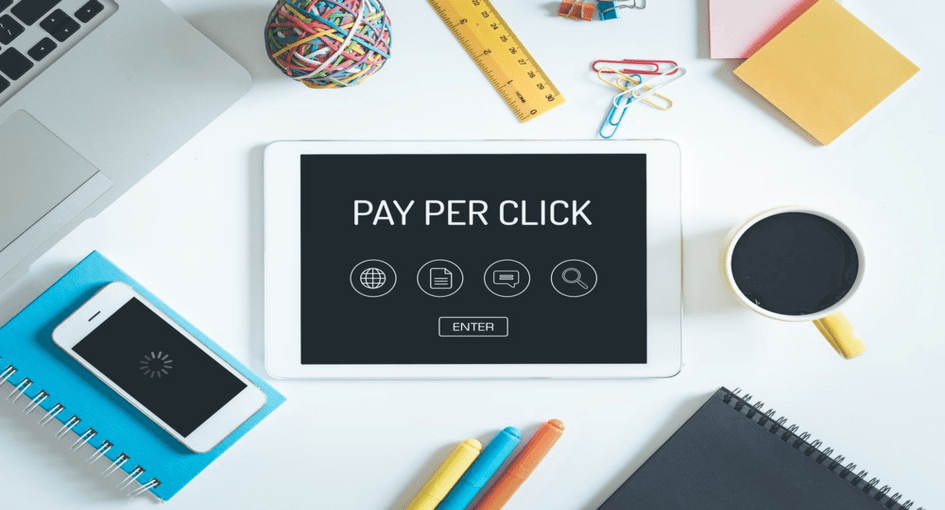
Pay-per-click (PPC) advertising is a form of online advertising that allows businesses to display their ads on search engines and other websites, and only pay when someone clicks on their ad. PPC advertising can be a highly effective way to reach your target audience, generate leads, and increase sales. In this article, we’ll explore the benefits of PPC advertising and provide some tips on how to create a successful PPC campaign.
Benefits of Pay-Per-Click Advertising
Targeted Advertising
One of the biggest advantages of PPC advertising is the ability to target your ads to specific audiences. With PPC, you can target users based on their search queries, geographic location, device type, interests, and more. This allows you to show your ads to people who are more likely to be interested in your products or services and avoid wasting your advertising budget on irrelevant clicks.
Cost-Effective Advertising
PPC advertising can be a cost-effective way to reach your target audience. Unlike traditional advertising, where you pay a fixed fee regardless of how many people see or click on your ad, with PPC advertising, you only pay when someone clicks on your ad. This means that you can control your advertising costs more effectively, and only pay for the clicks that actually generate leads or sales for your business.
Measurable Results
PPC advertising provides measurable results, which allows you to track your ROI and make data-driven decisions about your advertising strategy. With tools like Google Analytics, you can track how many people clicked on your ads, how long they stayed on your site, and whether they took any actions, such as filling out a contact form or making a purchase. This data can help you optimize your ad campaigns and improve your conversion rates.
Flexible Advertising
PPC advertising allows you to create flexible ad campaigns that can be adjusted based on your business needs. For example, you can create seasonal ad campaigns, adjust your ad budget based on your sales goals, or test different ad copy and landing pages to see which ones perform best. This flexibility allows you to adapt your advertising strategy to changing market conditions and customer needs.
Tips for Creating a Successful Pay-per-click Campaign
Define Your Goals and Audience
Before creating a PPC campaign, it’s important to define your goals and target audience. Are you looking to generate leads, increase sales, or promote brand awareness? Who is your target audience, and what are their interests and behaviors? Defining these factors will help you create targeted ads and choose the right keywords for your campaigns.
Choose the Right Keywords
Choosing the right keywords is crucial for the success of your PPC campaign. Use keyword research tools to identify relevant and high-traffic keywords that your target audience is searching for. Focus on long-tail keywords that are more specific and have less competition, as they can be more cost-effective and generate higher-quality leads.
Create Compelling Ad Copy
Your ad copy should be clear, concise, and compelling. Highlight the unique benefits of your products or services, use attention-grabbing headlines, and include a call-to-action that encourages users to click on your ad. Test different ad copy and landing pages to see which ones perform best, and make adjustments based on your results.
Optimize Your Landing Pages
Your landing pages should be optimized for conversion, with clear and relevant content, a prominent call-to-action, and a user-friendly design. Ensure that your landing pages are mobile-friendly and load quickly, as slow loading times can lead to high bounce rates and lower conversion rates.
Monitor and Adjust Your Campaigns
Monitoring your campaigns regularly and making adjustments based on your results is crucial for the success of your PPC advertising. Use analytics tools to track your click-through rates, conversion rates, and other metrics, and make adjustments to your ad copy,landing pages, and targeting to improve your results. Test different ad variations, keywords, and targeting options to find the optimal combination that generates the best results for your business.
Set a Realistic Budget
Setting a realistic budget is important to ensure that your PPC advertising is cost-effective and generates a positive ROI. Consider your business goals, target audience, and industry benchmark when setting your budget. Start with a small budget and gradually increase it as you see positive results.
Work with a Professional
PPC advertising can be complex and time-consuming, and working with a professional can help ensure that your campaigns are effective and cost-efficient. Consider working with a digital marketing agency or PPC consultant to help you create and manage your campaigns, optimize your ads and landing pages, and track your results.

Remember that successful PPC advertising requires ongoing monitoring, testing, and optimization. It’s important to stay up-to-date with the latest trends, algorithms, and best practices, and make adjustments to your campaigns accordingly. Regularly reviewing and adjusting your keywords, targeting, and ad copy can help improve your click-through rates, conversion rates, and overall ROI.
Another important factor to consider is ad relevance and quality score. Search engines like Google use quality scores to evaluate the relevance and quality of your ads and landing pages. A higher quality score can result in lower ad costs, higher ad positions, and better visibility for your ads.
Finally, don’t forget to track and measure your results regularly. Use analytics tools to track your click-through rates, conversion rates, and other metrics, and make adjustments to your campaigns based on your results. By continuously refining and optimizing your PPC campaigns, you can ensure that your advertising budget is being used effectively and that you’re getting the best possible return on investment.
In conclusion, pay-per-click advertising can be a powerful tool for businesses looking to reach their target audience, generate leads, and increase sales. By following these tips and best practices, you can create a successful PPC campaign that generates measurable results and helps you achieve your business goals.